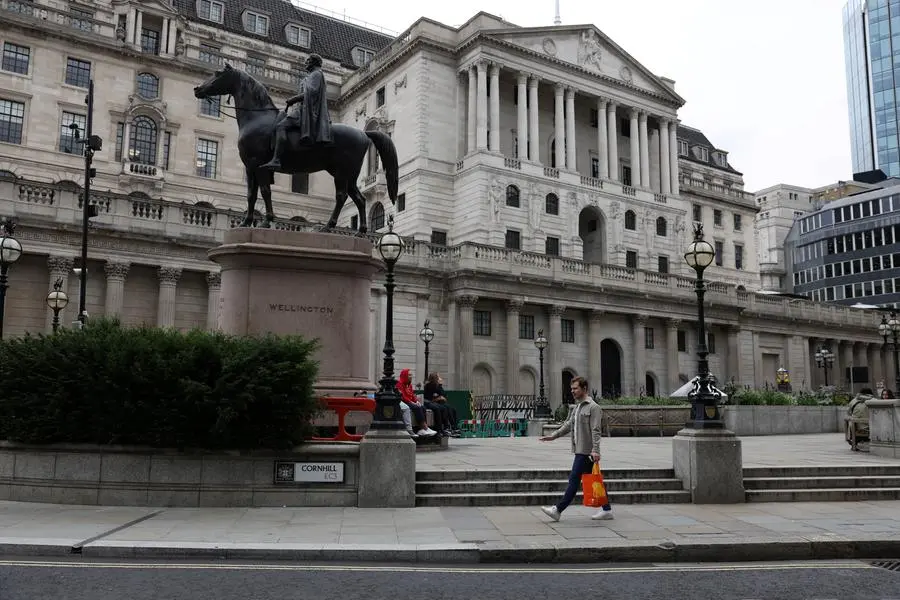PHOTO
Britain's high inflation rate unexpectedly fell in August, prompting investors to increase their bets on the Bank of England pausing its historic run of interest rates hikes as soon as Thursday.
Official data published on Wednesday showed the consumer price index dropped to 6.7%, its lowest since February 2022, from July's 6.8%, confounding forecasts by economists polled by Reuters - and the BoE - for an increase.
Sterling sank by almost half a cent to its lowest against the U.S. dollar since May and it also fell against the euro.
Investors put a nearly 50-50 chance on the BoE keeping rates on hold on Thursday after 14 back-to-back increases stretching back to December 2021.
The Office for National Statistics said the fall was driven by a drop in hotel prices and air fares, which are often volatile, and by food prices rising by less than at the same time last year.
That offset a jump in fuel prices and an increase in a tax on alcoholic drinks.
The BoE said last month that it expected inflation in August would rise to 7.1% before falling sharply to around 5% in October which would still be more than double its 2% target.
Investors had been overwhelmingly expecting the BoE to raise interest rates for the 15th time in a row on Thursday, taking Bank Rate to 5.5% from 5.25%.
That looked much less certain in light of the inflation data. At 0700 GMT, investors were putting a roughly 47% chance on the BoE pausing its run of rate hikes on Thursday, up from about 20% before the inflation figures were published.
INFLATION PRESSURES AHEAD
Some economists said the data might not cause the British central bank to change course, however.
"The inflation figures may not sway the Bank of England away from raising interest rates tomorrow," Yael Selfin, chief economist at KPMG UK, said.
"There are renewed concerns about the price of oil, which has risen by over 25% since June, and potential pressures on global food prices. These could not only slow the disinflation process further but also reverse the decline in inflation expectations, causing further worry for the Bank of England."
Britain's inflation rate remains high - topped only by Austria and Iceland among Western European countries in August.
But core inflation - which strips out volatile food and energy prices - fell by more than the headline rate to 6.2% from 6.9% in July. The Reuters poll had pointed to a reading of 6.8% in August.
Price growth in Britain's service sector, which is also being closed watched by the BoE, also lost some of its steam as it slowed to 6.8% from 7.4% in July.
As well as providing some relief to the BoE, which has come under criticism after inflation surpassed 11% last October, the latest figures were welcomed by the government of Prime Minister Rishi Sunak. He has promised to halve inflation this year before an election expected in 2024.
"Today's news shows the plan to deal with inflation is working - plain and simple," finance minister Jeremy Hunt said.
"But it is still too high which is why it is all the more important to stick to our plan to halve it so we can ease the pressure on families and businesses. It is also the only path to sustainably higher growth."
He said Britain could not afford to go on a "borrowing binge" in an apparent swipe at the opposition Labour Party which is riding high in opinion polls. (Additional reporting by William James; Editing by Hugh Lawson)





















